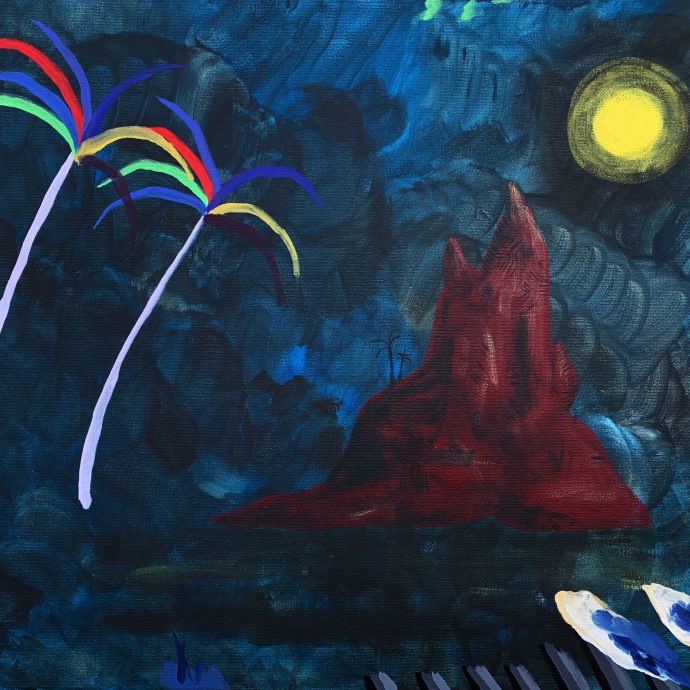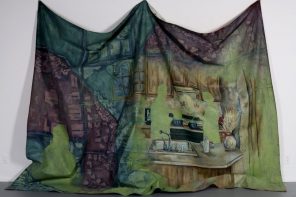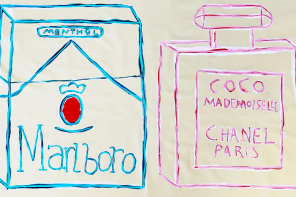Activation in the Midst of a Massacre
Yellow broth greases the rim of a bowl. I pick out a vertebrae from my mouth, set it on the table. The knuckle of former pain belongs only to me. I wear my mother’s socks as the snow melts. Strange that I never considered a chicken’s spine, the pylon of nerves and chemicals, such a tremendous small. Over the phone my therapist watches me cry, socks rolled to arches. “You are so sad,” she nods, as though pulling my vertebrae from her throat. I tire of the leader I’ve become, the one with a trail of goslings, flattened, deformed, cooked blind to stock. Delete all the apps, I’m told. Out the window, melted snow drift flanks my life. I have screamed many times. The trail shows the steps of a possum. She walked with slow deliberation, a life I never achieved: a care alone, unto none.
Beautiful Door
I am thinking about the story of an entire town slumped over from a bad heroin batch, body pressed against a brake at the traffic light, body felled in a motel pressed against carpet. I never learn much more about these stories. I stand at their porch for the census. I leave. In my first memory I wake up in my head, a toad in my hand. My father tells me this is impossible, I was too young, yet he confirms the toad, my fixation on the cereal box, the velvet pour of Life into a bowl. Some parts of me require being right like my father. The toad pissed in my hand. I threw it. To be correct avoids the lies of my history, which spreads as a black spore spelling its ills on the wall. I grew. I told a group of girls once that portobello meant beautiful door. I wanted to believe this into origin, incept etymology the way the past speeds ahead without us. If you dig long enough, a doorway opens in the earth. Portobellos grimace away from paradise and this is language, a speech offered in the bruise of surfacing. Today I tell my class that heaven cannot exists because we’ve relied on the promise to ruin one another. I raise my voice. Something grates in me. In the past, an arm hangs slack over a steering wheel, the u in utopia, literally nowhere.
Natalie Eilbert is the author of Indictus, winner of Noemi Press’s 2016 Poetry Prize, as well as the poetry collection, Swan Feast (Bloof Books, 2015). Her work has appeared in or is forthcoming from POETRY, Poem-a-Day, Granta, The New Yorker, Tin House, The Kenyon Review, jubilat, and elsewhere. She was the recipient of the 2016 Jay C. and Ruth Halls Poetry Fellowship at University of Wisconsin–Madison and is the founding editor of The Atlas Review.




